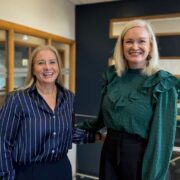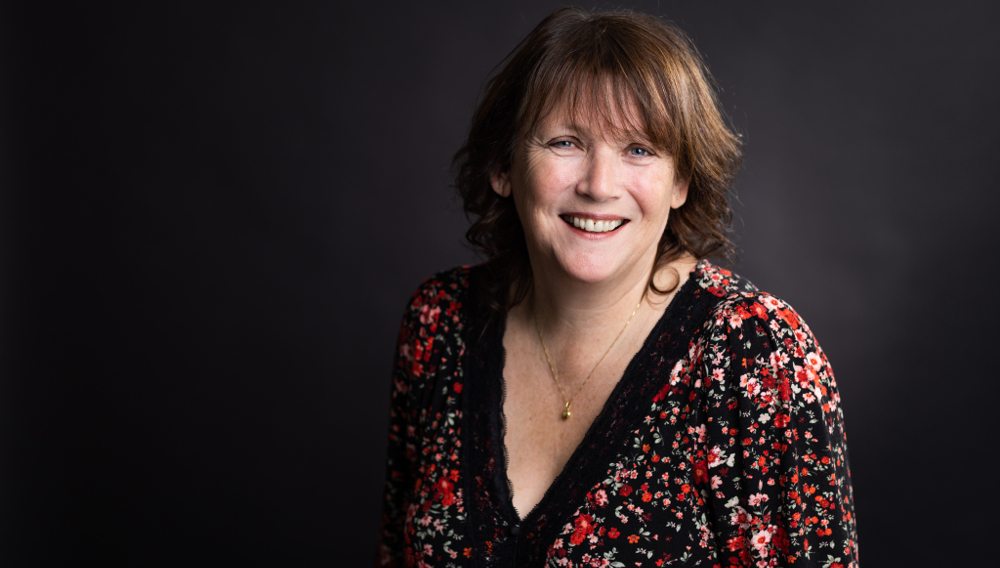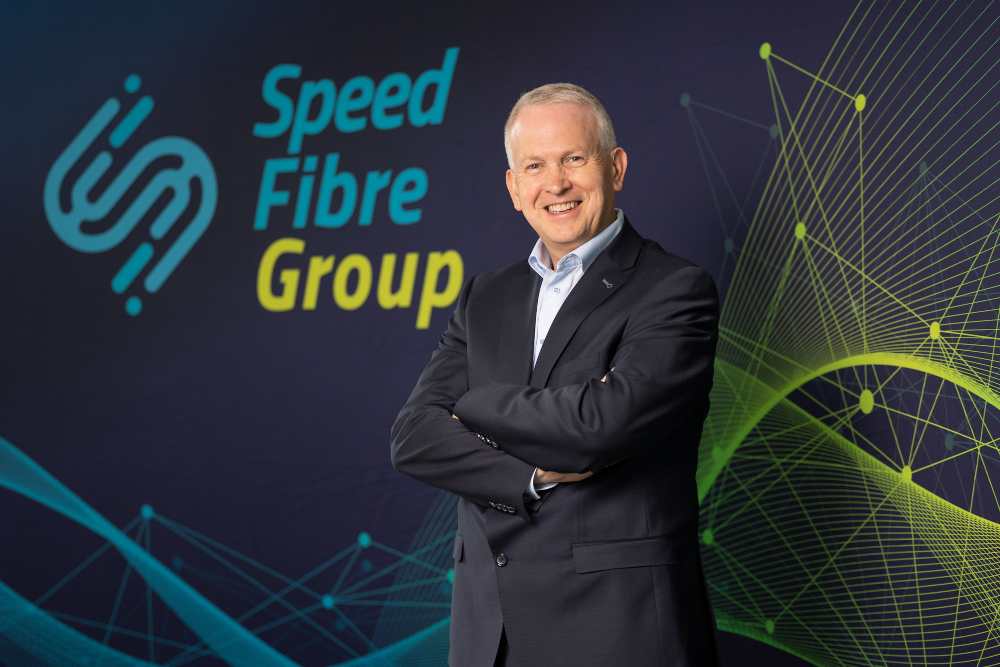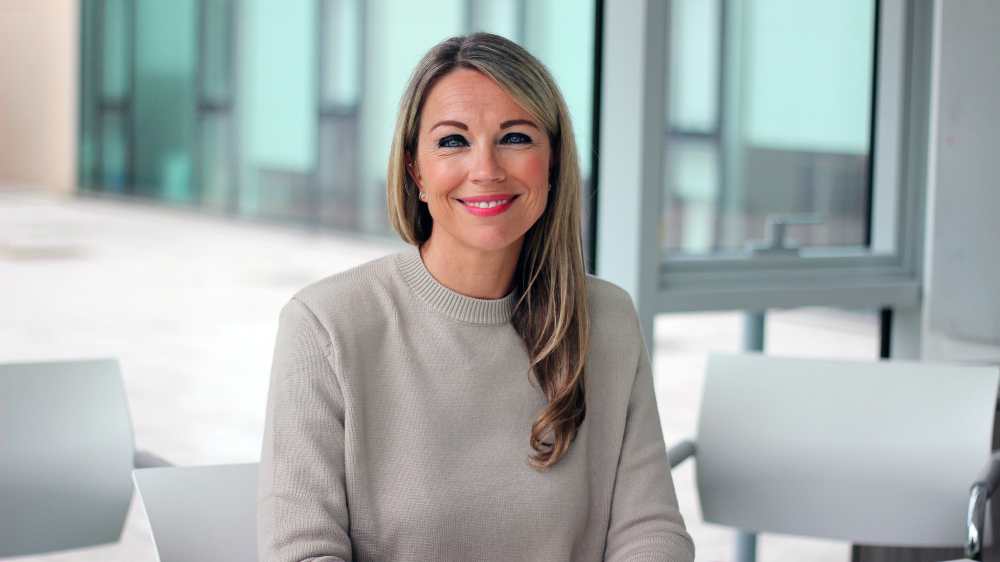Podcast 290: On the heels of acquiring BT’s business in Ireland, Speed Fibre Group CEO Peter McCarthy is determined to make Ireland’s infrastructure bottlenecks a thing of the past.
I joke with Peter McCarthy that perhaps 10 or 15 years ago I would have imagined that his company Speed Fibre Group’s coterie of businesses including Airspeed, Magnet+ and Enet, could possibly have been acquisition targets for the global telecoms behemoth that is BT plc.
Instead, it transpired in recent months that Speed itself completed the acquisition of the fibre assets of BT Communications Ireland Ltd and in one swoop making it the second largest wholesale telecoms operator on the island. The expanded Speed Fibre Group network will extend to nearly 10,000km of fibre, connecting 94 towns and cities and more than 6,000 buildings, including 2,500 in Dublin.
“With KPIs, if you’re constantly watching your business you can see the problems coming before they hit you, and that has stood to us”
A consummate businessman who cut his teeth at Denis O’Brian’s Esat Telecom followed by globe-trotting adventures with Digicel and Actavo, McCarthy zeal and determination to get the job done when it comes to digital infrastructure in Ireland is worth paying attention to. The devil is in the detail, or the KPIs.
Getting the job done
-
You can also listen to the Podcast on:
-
Spotify
-
SoundCloud
-
Apple
Having charted Ireland’s sluggish start at rolling out broadband more than 25 years ago, it is news to me – and a reminder how easy it can be to forget – that there are still tracts of the country that don’t have quality high-speed broadband, including the part of south Dublin where McCarthy himself lives.
By combining Speed with BT’s Irish infrastructure, McCarthy’s ambition is to build a single platform with deeper reach and further scale that will support everyone from the home owner, the entrepreneur, the SME to the next generation AI business with complex data centre requirements.
“I’ve been in telecoms or telecoms-related businesses five times in my career. I started out in Esat Telecom in 1997, which was an incredible experience. I was head of commercial procurement there, and was involved in everything. It was a rollercoaster ride, a brilliant experience.”
In 2001 McCarthy was the first group director at Digicel in the Caribbean where he expanded the business in to a number of markets in the region before he returned to Europe.
A helter-skelter ride in leadership powering a variety of industries from construction to energy followed at Actavo where he build the business from 800 people in two markets to 2,500 people in 13 markets over three years.
This included heading up Actavo in the Caribbean. “And I literally went from nobody to 1,500 people in three months. And I was in 11 markets. I traveled market to market every two or three days. Living in hotels for 18 months nearly killed me. Every day was like D-Day. I remember meeting Denis O’Brien in a restaurant in the hotel in Trinidad one day, and he said to me, ‘Have you got your arms around this bear?’ And I said, ‘Denis, the bear is mauling me every minute of the day.’”
He returned to Digicel to expand O’Brien’s Caribbean empire, including building Digicel’s total digital brand. “And for the first time I would say that in all the times I ever worked down there, that I actually got to enjoy a bit of the Caribbean.
“But I knew at the beginning of 2018, coming back, that if I was going to have a family, a wife and kids for a whole lot longer, I needed to be here in Ireland. I was doing a huge amount of traveling. But I just knew I had to be at home. And I really knuckled down to get a role in Ireland and landed the Enet CEO role.”
It’s different now, but the same
The Enet wholesale business, which includes Government concessions and critical infrastructure such as the metropolitan area networks (MANs) that surround most Irish towns, brought McCarthy back into familiar territory and a battleground that must have felt a bit like déjà vu.
And, just like how Esat would have competed with Eir at the turn of the century, the Speed Fibre Group is competing with an entrenched incumbent operator that has Xavier Neil of European telecoms giant Iliad at its helm.
He doesn’t mince his words: “The original incumbents are becoming monopolistic again.”
Eir, he argues, is putting up a spirited defence of its market share
“We’ve been keeping our heads down. And this year, for the first time in a long time, we’ve really had to put our heads back up. We’ve had to beef up our regulation team, and we have a series of complaints sitting in ComReg.”
He argues that the telecoms regulator needs to move faster to deal with complaints from the industry.
“I would be very happy to meet Eir any day of the week and have just friendly and business-like discussions, but I’m very conscious that we have to fight our corner. And I think it’s a rallying cry even in our business and the combined business now that we have here is that everybody knows that Eir is becoming more and more competitive in terms of what they’re doing. And we have to fight that. If we’re going to survive in the marketplace, we have to fight the regulations, and we have to fight what is becoming, again, a monopolistic incumbent.”
I point out that the expanded Speed Fibre Group with BT’s assets presents a credible challenger to the established order of things in telecoms, but McCarthy believes there’s a long road ahead if Ireland is to get the infrastructure it requires to stay relevant.
“I’ll give you a clear example of why we’re not there yet. I live in Rathgar. I got fibre down the road for the first time four weeks ago. I have tried everything, with all my contacts and all my relationships to try and get fibre down that road for five years, and I failed. I actually have fibre from two operators nearby but they haven’t connected the houses yet. But it’s been a real struggle, and I still think there’s a lot of black spots. There’s a lot of black spots in the industrial parks as well.
“We spent nearly €75m over the last probably seven years changing out a lot of our network. And probably over 70% of everything in our network now is less than five years old. But we’ve also been connecting all the industrial parks, and when we talk about 6,000 connected premises, the NBIs and the Siros will be connecting tens of thousands of houses. We’re not connecting houses. We’re connecting offices. We’re connecting business premises, and we’re running dedicated fibre in and there’s a huge difference between fibre to the home (FTTH) and the FTTH that you have at home, or that I now have at home.
“It’s still contended. So we still have the issue that we’re sharing it with everybody else. We still have the issue that it’s not dedicated. If I put in a 200Mbps line into an office and it’s dedicated, it’s way better, way more guaranteed for service than your 1Gbps at home. So there is a huge difference in that and connecting the premises with fibre, and our ability then to switch on, switch off, turn up, turn down, that’s really important, and be able to do that in a centralised basis. We put a lot of effort now into centralising a lot of what we do, so we don’t have to send the engineer out to upgrade.”
A numbers game
McCarthy credits his early tutelage in business alongside leaders like Denis O’Brien and Sean Corkery as preparing him for the battles ahead.
“We’ve done major work in Enet, and then subsequently when we bought Magnet+, and we put Airspeed Telecom with Magnet, and we built that up into a good retailer. We’ve been very much focused on building a culture and an ethos which is very similar to what we had in Esat Telecom and Digicel. Sean Corkery was probably the finest manager I have ever come across. His ability to understand his business through data, to understand and measure everything, was impressed upon me.
“We understood every day of the week where we were, and that’s critically important in our business today and when you take over a business like Enet, which I did in 2018, you get it.”
Many of his colleagues at Speed Fibre Group are ex-Esat and Digfone. “And what I find is they know the rhythm, they know the story. Every Monday morning, we review our KPIs from the previous week. Every month, we do a deep dive into the business. So I may be the CEO, but I go through every single department and everybody stands up and is accountable. I think we’ve got a very driven culture in our business, but at the same time, it’s very fair. The customer is key to what we do.
“And that’s very much how we have built our business over the last seven years. I think we’ve eaten our rivals’ lunch with customer service, and we’re very agile.
“With KPIs, if you’re constantly watching your business you can see the problems coming before they hit you, and that has stood to us.
“My CFO and myself have hit our budgets every single month since January 2019. We’ve grown. We’ve doubled in size. The acquisition of BT doubles our size again. We’ve managed to maintain our profit levels. We’ve turned Magnet+ into a sales machine where a lot of the network is provided by us, but at the same time, they’re competing hard in the marketplace.”
Investing in Enet’s fibre infrastructure is making a key difference. “We had serious issues with single points of failure, and the investment we put into that, the effort we put into really engaging with the customers to provide a brilliant service, that has helped us enormously. So they’re the key things I would have taken from my time with Denis and his organisation.
“I think it’s life changing, the experience you get when you interact with people like that. It absolutely is. And I’d like to think that not only what I learned from them, but what I learned in all the other roles I ever had.
“Enet and Speed Fibre Group is to me everything that I’ve ever learned incorporated into one business and creating a brilliant management team that I love to death. Every month I look around the table and say, ‘Christ, that person’s come on again. They’re brilliant. They’re really on top of their game. They know what they’re doing. That is brilliant.’ To have that sort of sense of a team. I love working with these guys. I love getting up on a Monday morning and going to work with these guys. And I know they have my back and I have their backs. And we fight the fight.
“At the heart of it is what gets measured, gets managed.”
-
Bank of Ireland is welcoming new customers every day – funding investments, working capital and expansions across multiple sectors. To learn more, click here
-
For support in challenging times, click here
-
Listen to the ThinkBusiness Podcast for business insights and inspiration. All episodes are here. You can also listen to the Podcast on:
-
Spotify
-
SoundCloud
-
Apple





